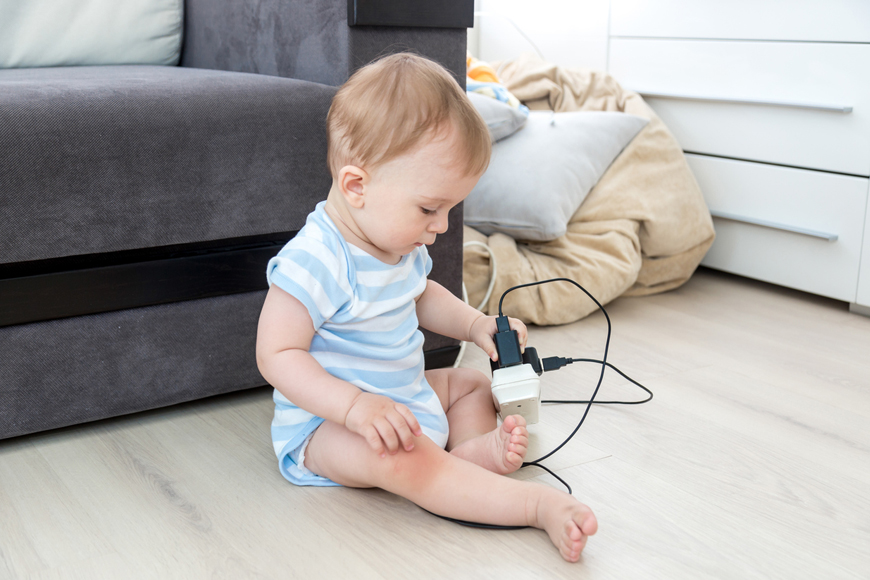How to Make Your Electrics Safe From Children
While electricity is basically safe, that doesn't mean you shouldn't take precautions
31 July 2013
Editor

Electricity is basically safe, provided you follow a few common-sense rules. But that’s no cause for complacency.
Get it wrong and you run the risk of starting a fire, getting an electric shock or even being electrocuted.
Find out how to keep your children safe with electricity.
Did You Know?
Faulty electrics start up to one in six house fires. Causes include loose wiring, damaged cables and leads, and faulty or misused electrical appliances.
Overloaded sockets can start house fires too – especially if one of the electrical appliances is a kettle, as they use lots of power.
Water and electricity are a potentially deadly mix. But, in a 2007 survey, one in three parents admitted that their children didn’t know you should never touch electrical items with wet hands.
Children can get an electric shock from using mains-powered electrical appliances in the bathroom, from touching exposed wiring or from using a metal knife to get stuck toast out of the toaster.
Electrical sockets do not pose a significant threat to young children. Legislation requires all sockets to meet stringent safety requirements. Young children are unlikely to have the dexterity or patience needed to be able to access live parts inside the socket, as they are protected by a shutter. Little fingers won’t fit.
Socket covers may stop young children plugging in heaters, hair straighteners and other appliances that can cause nasty burns – or even start a fire – but don’t rely on them as socket covers are not regulated. It’s much better to make sure the appliances are safely put away!

























.png?itok=SvZPqMHH)




.png?itok=uB2ieOR7)












